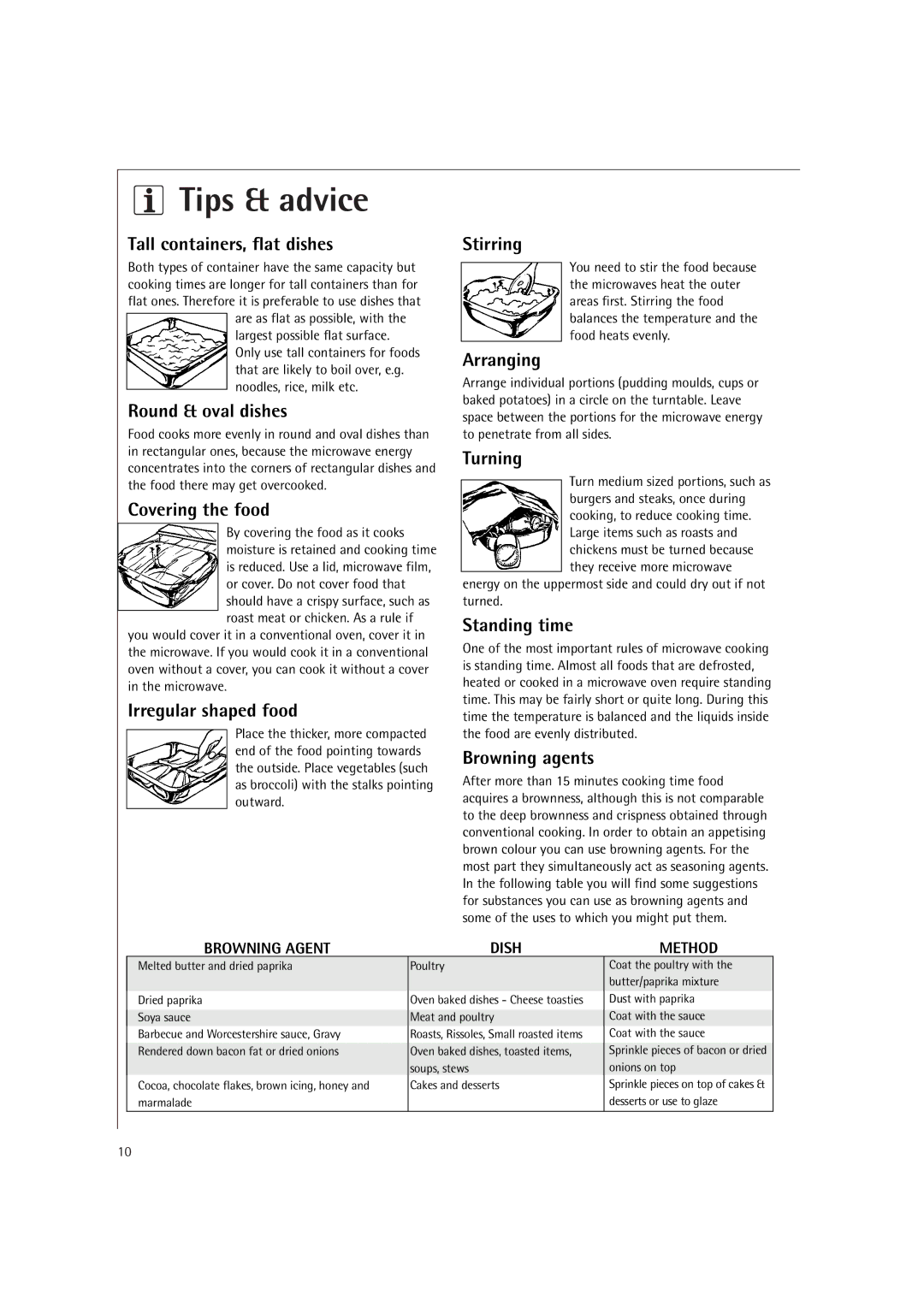
Tips & advice
Tall containers, flat dishes
Both types of container have the same capacity but cooking times are longer for tall containers than for flat ones. Therefore it is preferable to use dishes that
are as flat as possible, with the largest possible flat surface. Only use tall containers for foods that are likely to boil over, e.g. noodles, rice, milk etc.
Round & oval dishes
Food cooks more evenly in round and oval dishes than in rectangular ones, because the microwave energy concentrates into the corners of rectangular dishes and the food there may get overcooked.
Covering the food
By covering the food as it cooks moisture is retained and cooking time is reduced. Use a lid, microwave film, or cover. Do not cover food that should have a crispy surface, such as roast meat or chicken. As a rule if
you would cover it in a conventional oven, cover it in the microwave. If you would cook it in a conventional oven without a cover, you can cook it without a cover in the microwave.
Irregular shaped food
Place the thicker, more compacted end of the food pointing towards the outside. Place vegetables (such as broccoli) with the stalks pointing outward.
Stirring
You need to stir the food because the microwaves heat the outer areas first. Stirring the food balances the temperature and the food heats evenly.
Arranging
Arrange individual portions (pudding moulds, cups or baked potatoes) in a circle on the turntable. Leave space between the portions for the microwave energy to penetrate from all sides.
Turning
Turn medium sized portions, such as burgers and steaks, once during cooking, to reduce cooking time. Large items such as roasts and chickens must be turned because they receive more microwave
energy on the uppermost side and could dry out if not turned.
Standing time
One of the most important rules of microwave cooking is standing time. Almost all foods that are defrosted, heated or cooked in a microwave oven require standing time. This may be fairly short or quite long. During this time the temperature is balanced and the liquids inside the food are evenly distributed.
Browning agents
After more than 15 minutes cooking time food acquires a brownness, although this is not comparable to the deep brownness and crispness obtained through conventional cooking. In order to obtain an appetising brown colour you can use browning agents. For the most part they simultaneously act as seasoning agents. In the following table you will find some suggestions for substances you can use as browning agents and some of the uses to which you might put them.
BROWNING AGENT | DISH | METHOD |
Melted butter and dried paprika
Dried paprika
Soya sauce
Barbecue and Worcestershire sauce, Gravy
Rendered down bacon fat or dried onions
Cocoa, chocolate flakes, brown icing, honey and marmalade
Poultry
Oven baked dishes - Cheese toasties
Meat and poultry
Roasts, Rissoles, Small roasted items
Oven baked dishes, toasted items, soups, stews
Cakes and desserts
Coat the poultry with the butter/paprika mixture Dust with paprika
Coat with the sauce
Coat with the sauce
Sprinkle pieces of bacon or dried onions on top
Sprinkle pieces on top of cakes & desserts or use to glaze
10
